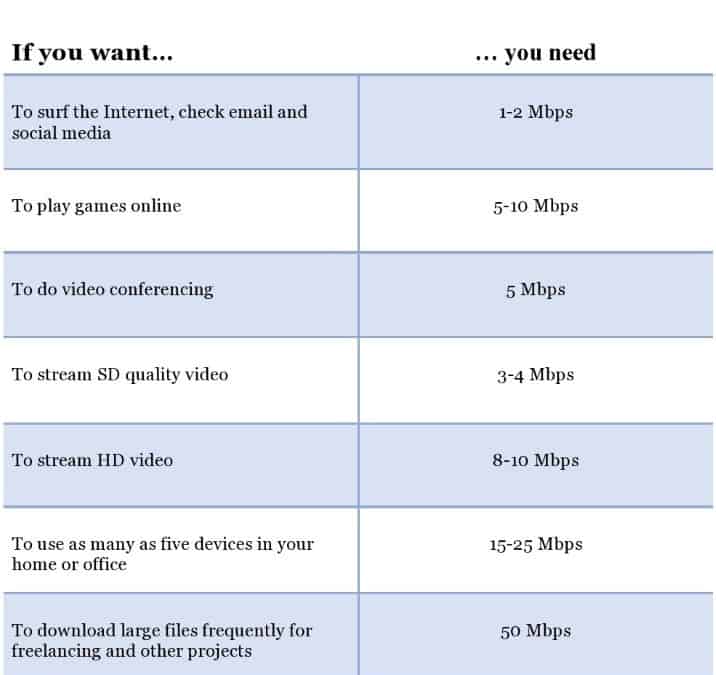[ad_1]
Photo by Muhammad Raufan Yusup on Unsplash
The Internet is everywhere, they say. Yet it can be hard to pinpoint the right Internet Service Provider (ISP) to assist you in your journey. Whether you’re looking for a new ISP for your business or you just want a good connection for your home, there is so much to sift through.
For example, there are complicated contract details, service delivery
channels, unending bundle choices, and availability. What’s more, there is
always lots and lots of fine print—and you might still choose the wrong one!
RELATED ARTICLE: 10 BENEFITS OF USING VOIP TECHNOLOGY FOR BUSINESS
So go through the following guide to make this a little less of a hassle.
Determine the Right
Speed
Understanding what bandwidth or Internet speed means should be your first concern. Once that is clear it will be easier for you to choose the service that best satisfies your Internet needs.
Bandwidth is the maximum speed with which you can transfer data to and from the Internet and your device. It is usually expressed in megabits per second, or Mbps. The more you rely on data-intensive activities or the greater the number of devices you have over the same connection, the greater the bandwidth you are going to need.
The following table will assist you in determining the right speed for your personal or professional use.

What Internet Service Providers Operate in Your Area?
The first stage in selecting an Internet service provider is to find out which providers offer services in your area. This is because:
1. Not every company is operational in every region.
Service areas are different from company to company, so your options are restricted to providers that offer network in your area.
2. Rates, Internet speeds, special packages, and line-ups of products often differ according to area.
Always check if an offer is applicable in your area before you decide on a provider. In addition, keep in mind that most distributors have variable pricing in different areas.
Once you have sorted the Internet speed you need, you can search for “Internet providers in my area” to get the best deals and offers available where you live or have your business.
If you live in an urban area, you’ll have the luxury of choosing between cable, satellite, or fiber optic providers. However, rural subscribers generally have only satellite service available to them.
Choosing the Right Internet Channel
Cable service providers generally provide the fastest, more affordable, and most reliable Internet speeds. The Internet speeds you can get from a phone company via digital subscriber lines (DSL) are a less expensive but slower alternative.
Satellite Internet is available practically everywhere. However, this is the slowest of them all. Fiber optic offers the highest speeds, but this isn’t a common channel and it can be more expensive than cable Internet.
You’ll need to choose the available option that best suits your needs in terms of consistent target bandwidth.
Finding a Company That Suits You Best
Now you need to choose from among the various packages and deals that are available to you. As we mentioned earlier, your choices can vary considerably, based on your location. Additionally, here are a couple of other important considerations before you decide on your ISP:
Promotions
You will often see offers to attract first-time customers. For example, a provider might offer the first year of broadband service at $20 per month instead of $40. While you can find good rates among these offers, just make sure that at the end of the contract period you are prepared to either pay extra or terminate your service.
Bundles
Most cable providers sell bundled packages of telephone, Internet, and TV services in various combinations. When subscribing for these bulk options, think carefully. Remember that these companies also seek to upsell their services. In other words, they will try to get you to purchase more products from them than you originally intended.
For instance, the representative might ask if you need a home phone. Or they might question your intention to get by on an Internet connection to stream television. Wouldn’t it make more sense, they might argue, to purchase a complete cable package with three services bundled?
And, indeed, it might. Bundling services can make good sense in certain cases. Just remember to consider your investment and returns before making a decision.
A Final Word
Overall, be careful about the upsell. Know exactly what you need when you place your subscription, and don’t be enticed to purchase more until you’ve done sufficient research.
Last but not least, don’t forget to negotiate with the service provider. They usually have a little wiggle room in the packages on offer. A little effort might save you a lot in the long run.
For more information about technologies available for your business, be sure to check out our blog.
[ad_2]
Source link
Leave a Reply